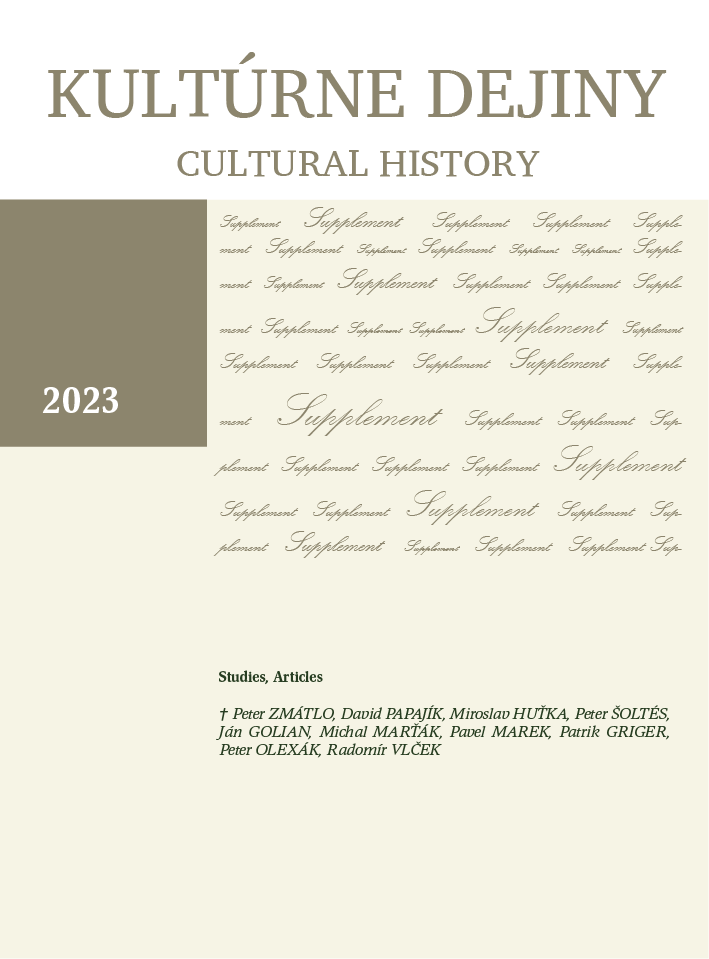K reflexi pastýřského listu slovenských biskupů z roku 1924 Československou stranou národně socialistickou
On the reflection of the Pastoral Letter of the Slovak bishops of 1924 by the Czechoslovak National Socialist Party
Author(s): Pavel MarekSubject(s): Christian Theology and Religion, History, Cultural history, History of Church(es), Diplomatic history
Published by: VERBUM - vydavateľstvo Katolíckej univerzity v Ružomberku
Keywords: Catholic Church; College of Bishops; Pastoral Letter of 1924; Anti-Catholi¬cism; Czechoslovak National Socialists; Government Crisis
Summary/Abstract: The Slovak and Subcarpathian Ruthenia bishops of the Catholic and Greek Catholic Churches published a pastoral letter in November 1924 to respond to the fact that some members of these churches were members of communist, socialist or progressive organizations that rejected belief in God, criticizing the churches from atheistic positions and striving to create a secular society. The socialists, in an effort to expand their membership and electorate, went so far as to formally present themselves with Christian symbolism, which was supposed to deceive Catholics in a difficult social position and attract them to their ranks. The bishops reflected on this fact and, through the Pastoral Letter, explained to the members of their churches the destructiveness of socialist and progressive theories and recommended that they leave anti Catholic organizations. Those Catholics who deliberately failed to take their teachings and warnings into account had to expect that the church would not administer certain sacraments to them. The publication of the Pastoral Letter provoked a fierce reaction in socialist and progressive circles as an attack against the state, its constitution and laws, the government and the democratic system that threatened the very existence of the Republic. The Pastoral Letter and its authors, the Catholic Church, the Holy See and Czech and Slovak political Catholicism were violently attacked by journalists and it triggered a press affair. Subsequently, the question time of German Social Democrats in the Chamber of Deputies resulted in a government crisis solved not only by the gov-ernment, parliament, and political parties, but also by the so-called Pětka (Committee of Five) as the supreme body of Czechoslovak politics. The search for a way out of the government crisis showed that the socialists, especially the Czechoslovak National Socialist Party, did not want to defend their own ideology in the case, but used the publication of the Letter to pressure the Czechoslovak People’s Party, which, as part of the government coalition and the Švehla government, hindered the solution of the issue of regulating the relationship between the state and the Catholic Church. They wanted to force a change in its attitude by acting tactically with the idea of a minority government without the participation of the Czechoslovak People’s Party. However, the Czechoslovak People’s Party’s leaders handled the difficult situation it found itself in due to pressure from its coalition partners and the Catholic Slovak People’s Party and the Prague radical wing of its own party formed around Rudolf Horský, thanks to the prudent policy of its chairman Jan Šrámek. Although it agreed to negotiate a regulation of the relationship between the state and the churches, it defended the membership of the Czechoslovak People’s Party in the governing coalition, agreed to prosecute only those priests who manifestly violated the law and defended the right of bishops to act independently in public within the limits of the law. The article analyses and evaluates the attitudes and behaviour of the Czechoslovak National Socialist Party in this case.
Journal: Kultúrne dejiny
- Issue Year: 14/2023
- Issue No: Supplement
- Page Range: 122-146
- Page Count: 25
- Language: Czech

